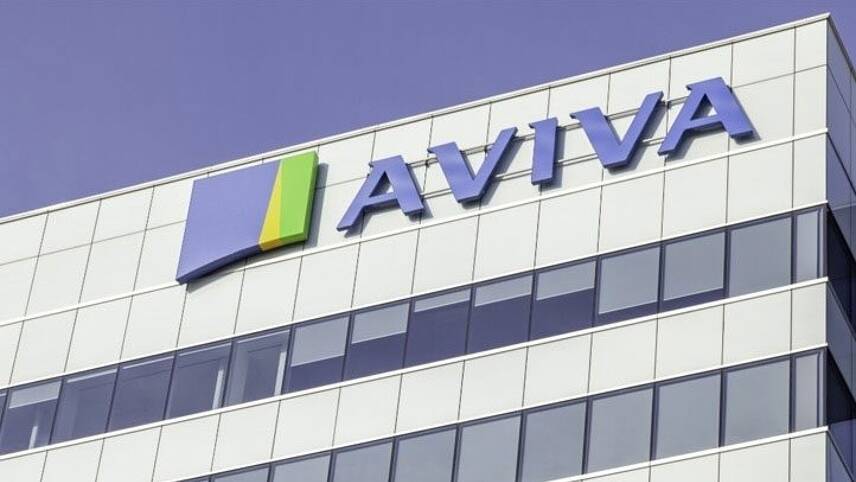Register for free and continue reading
Join our growing army of changemakers and get unlimited access to our premium content

Aviva has been warning the Government that the financial sector is not yet aligned with the net-zero transition
The investment giant set a 2040 net-zero target earlier this year and stated at the time that greater policy support would be needed to get the whole sector to follow suit. It has since been working with WWF to develop a new policy paper, containing recommendations for aligning the UK’s financial sector with its long-term climate goals.
Entitled ‘Transition Plans for a Net-Zero Future’, the policy paper argues the benefits of mandating the UK’s regulated financial institutions to publish not only net-zero targets for 2050 at the latest, but credible transition plans to back them up, from 2023. To meet this deadline, the Treasury could encourage such firms to produce transition plans by the end of 2022 in a statement ahead of COP26.
To assess whether transition plans are ambitious and credible, the UK Government should work with “regulators, industry and civil society” to develop appropriate metrics. Issues covered could include capital allocation, divestment and engagement.
This mandate could and should be applied in other geographies, the paper states. It argues that the UK can use its position as COP26 host and its membership to the G7 and G20 to encourage other nations to follow suit.
While welcoming the recent commitment from G7 nations to mandate climate risk reporting in line with the Taskforce for Climate-related Financial Disclosures (TCFD), the paper states that more must be done to compel the sector to front-load the transition to net-zero.
As many green groups have recommended already, the Aviva-WWF paper additionally calls on Ministers to ensure that the net-zero roadmap – a framework signalling the sector-specific timescales for decarbonisation and the preferred technology pathway for their delivery – is delivered ahead of COP26 as promised.
The publication of the paper comes after a recent WWF report concluded that UK banks and asset managers collectively financed projects emitting 805 million tonnes of greenhouse gases in 2019 – around twice the UK’s annual national carbon footprint. Despite the popularity of net-zero targets, recent CDP analysis revealed that the average finance firm’s financed emissions will be 700 times higher than those of their direct operations- but just one in four companies are measuring and disclosing them globally.
“We know that the finance sector has a staggering climate footprint, and that simply has to change if we are to stand a chance of meeting the Paris Agreement targets of limiting global warming to 1.5C,” WWF UK’s chief executive Tanya Steele said.
“But as we look to build a greener, stable planet with a sustainable economy, the sector can also be a force for positive change. Aviva is already a climate leader in the industry and demonstrates the enormous potential for our pensions and insurance in helping to tackle the environmental crisis. Together, we hope to inspire other financial institutions along this journey and to jointly call for ambitious government reform of the sector in the run-up to COP26.”
Cardano’s climate plans
In related news, Cardano, which provides services to pension schemes and private investors, has outlined its plans for aligning investment portfolios with net-zero by 2050. The firm advises on more than £61bn of assets.
Cardano has set an interim target to reduce overall emissions from portfolios by 50% by 2030, against a 2019 baseline. The ambition is higher than 50% for some sectors and lower for others, in recognition of context such as technology maturity. A baseline measurement of emissions is now underway.
The firm has also committed to measure and disclose transition risks, physical risks and environmental opportunities. Green bonds are identified as a key focus area for the latter. These measures build on Cardano’s existing membership to the Net Zero Asset Managers Initiative, Partnership for Carbon Accounting Financials (PACF), Institutional Investors Group on Climate Change (IIGCC), UN Principles for Responsible Investment (PRI) and the Climate Action 100+.
While celebrating the announcement, Cardano UK’s chief executive Kerrin Rosenberg said that the market needs to be moved to net-zero beyond voluntary individual commitments from firms at this point.
Rosenberg said: “We believe net-zero is a collective action problem. First and foremost, we will align our investment portfolios with net-zero. But ultimately, we need to move the market as-a-whole. That’s why we’ll work collaboratively to protect our beneficiaries from the environmental and financial consequences of climate change.”
Join the conversation at edie’s Sustainable Investment Conference
Financial and environmental experts from some of the world’s largest investors and banks will discuss the prominent rise in environmental, social and governance (ESG) investing and what that means for business at edie’s Sustainable Investment Conference next month.
The two-day digital event takes place on 13-14 July and will see sustainability professionals from businesses and financial experts from investors meet to discuss the array of challenges and opportunities that embracing the green recovery can bring.
Find out more information here.
Sarah George


Please login or Register to leave a comment.